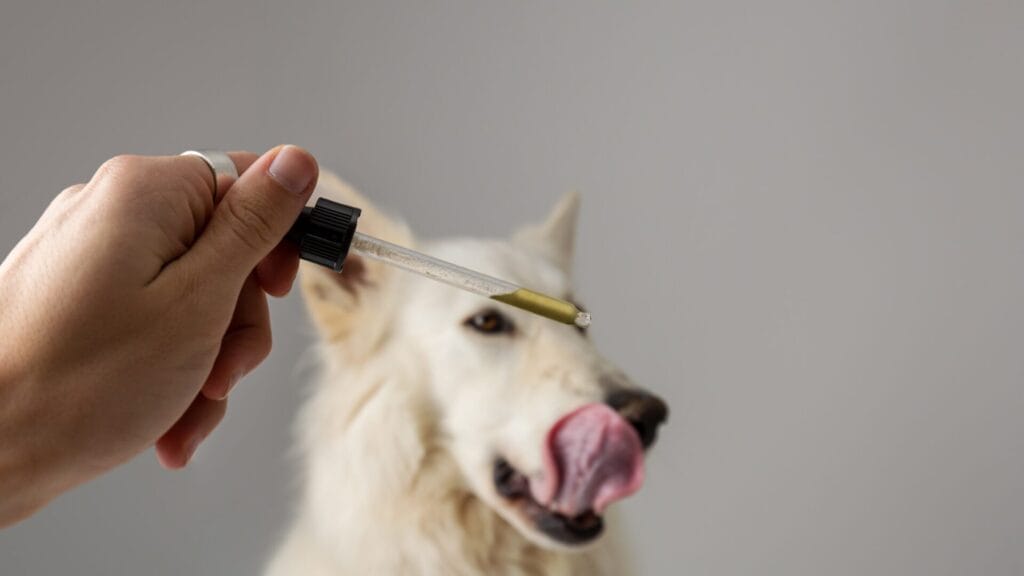Just like humans, dogs are also vulnerable to illnesses and diseases; fortunately many of them are easy to treat. If the issue isn’t treated, however, it can threaten your pups’s health. As long as you’re taking care to address the concern, there is nothing to worry about. In this article, we’ve outlined some of the most common dog illnesses and how to treat them effectively.

7 Most Common Dog Illnesses
Ear Infections
Causes: Moisture, parasites, endocrine disorders, allergies, injury, wax
Symptoms: Dark discharge, odor, constant head shaking, scratching, erythema, swelling, crust formation
Treatment: Topical medication, oral antibiotics, thoroughly cleaning the affected ear using medicated ear cleanser
Ear infections are one of the dogs’ most common medical conditions, mainly due to their long and floppy ears. Around 20% of all dogs, as reported by the AKC, have ear infections in one or both ears. These infections are comparatively easy to treat; fortunately, many over-the-counter medications are available. Prompt treatment is necessary to avoid secondary infections and avoid surgical intervention.
Hip Dysplasia
Causes: Genetics, nutrition, excessive growth rate, improper training exercises, weight
Symptoms: Lameness, pain, decreased range of motion, swaying, abnormal sitting positions
Treatment: Physical therapy, weight loss, oral joint supplements, steroids, surgery
Hip dysplasia is a skeletal condition involving the hip joint that starts to deteriorate over time, weakening the joint and leading to lameness and pain. Large dog breeds like Great Danes and German Shepherds are more prone to developing hip dysplasia which is found to be hereditary. It can be serious, but early intervention and responsible pet ownership can help your pup enjoy a comfortable lifestyle.

Periodontal Disease
Causes: Plaque
Symptoms: Bleeding gums, inflammation, reduced appetite, discolored teeth, bad breath
Treatment: Scaling, polishing, antibiotics, pain medication
Periodontal disease is quite common among dogs and can damage your mutt’s oral and physical health. The biggest issue with periodontal disease is that it’s a silent killer and only gets detected when it has reached an advanced stage. Bacteria accumulation and plaque build-up over time lead to inflammation of the gums (gingivitis), and a break between the gums and teeth later develops.
Obesity
Causes: Overeating, hormone imbalances
Symptoms: Excess body fat, weight gain, abnormal body condition score
Treatment: High-quality diet, exercise
According to the survey conducted by the Pet Obesity Prevention Association, around 55.8% of dogs in the United States are overweight or obese. It’s a major health crisis that often stands neglected and leads to serious health complications. Many owners don’t even realize that their mutt is obese. While obesity is a problem, it’s fairly easy to get better, and many vets recommend a high-quality diet and frequent exercise for your pup to get excellent results.
Urinary Tract Infections
Causes: E.Coli, trauma, bladder infection, bladder stones, chronic kidney disease
Symptoms: Bloody urine, strained urination, constant licking of the genitals, fever, vomiting, weight loss
Treatment: Antibiotics after urinalysis
Most UTIs disappear on their own and are not serious or complicated with mild to moderate distress. But, as the bacteria population increases, so do the severity level of the diseases caused. The main culprit in most UTIs is E.coli, which travels up the urinary tract and colonizes the urinary tract. After a thorough investigation and history, your vet will be able to diagnose and separate it from other distressing conditions–and most likely will recommend a culture test to start antibiotics.
Allergies
Causes: Food, medication, environmental allergens, idiopathic
Symptoms: Inflamed skin, sneezing, itchiness, hives, red itchy eyes, runny or stuffy nose
Treatment: Lifestyle modifications, dietary changes, medications, natural remedies
No matter how serious an allergic reaction gets, prompt removal from the source can quicken the recovery state. Your pup could be allergic to all sorts of environmental or food allergens, and the solution is only possible with the identification of the source.
Diabetes
Causes: Obesity, Cushing’s disease, pancreatitis, genetics, age, gender
Symptoms: Excessive thirst, increased urination, increased appetite, lethargy, dehydration
Treatment: Low-glucose diet, exercise, insulin injections
Diabetes Mellitus is a common disorder affecting many pets, including dogs, and is actually prevalent in humans as well. The basic physiology behind diabetes is that the body can’t metabolize the sugar it’s receiving, and the sugar gets excreted in the urine in excess. Over time, the body starves from the lack of glucose available to metabolize, and lethargy, weight loss, and dehydration are the most probable results. Although no treatment option is available, proper management can help your dog live a comfortable life.
In Conclusion: Common Dog Illnesses
While most of these common dog illnesses are not serious and are quite common among dogs, they may become life-threatening if proper care is not provided. After identifying your dog’s discomfort, it’s always helpful to consult a vet for professional advice.




















